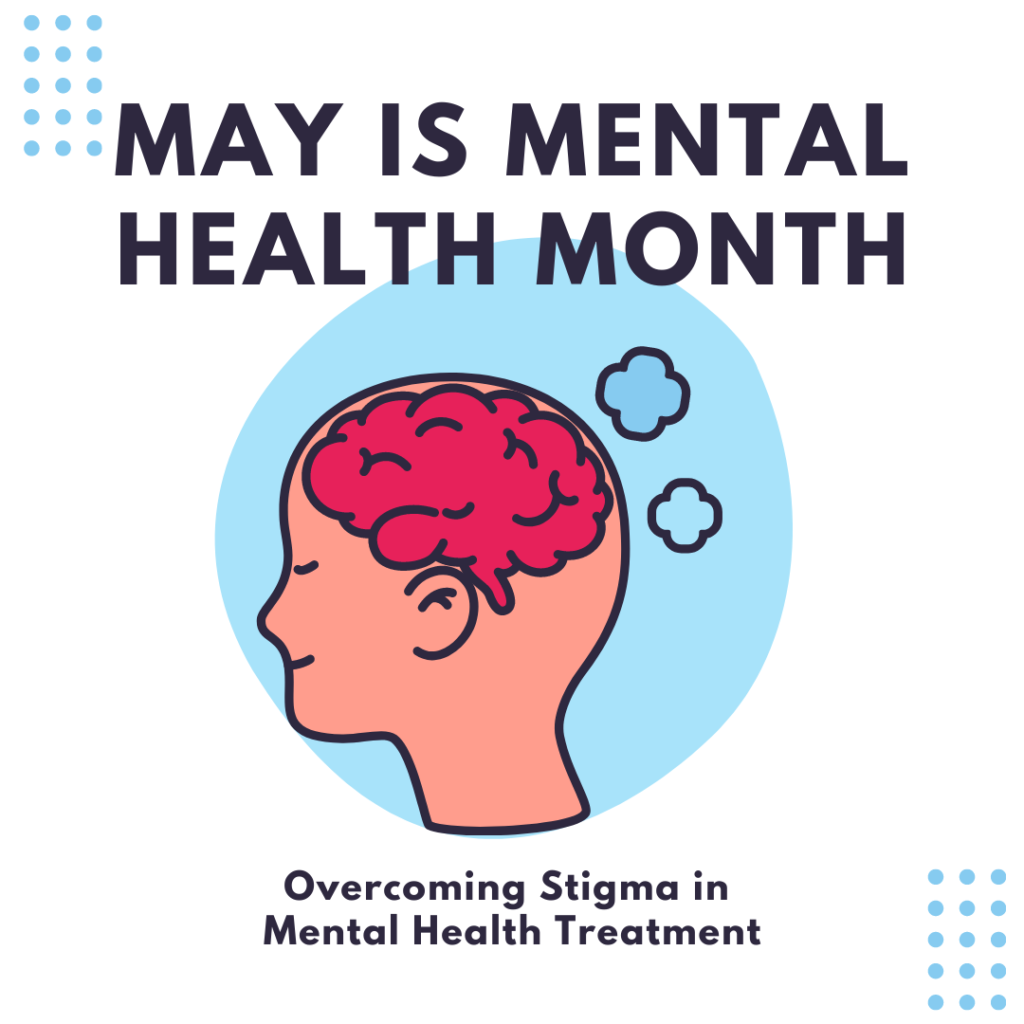
Over 70 years ago, Mental Health America began Mental Health Month to reduce stigma and cultivate healthy conversations about mental health. Their work is essential, and the message of Mental Health Month remains one that we place at the center of our healing mission within THIRA Health. Challenging disapproval and overcoming the hurt it causes is at the heart of everything we do to foster whole person care.
What does stigma mean in mental health?
The definition of stigma is “a mark of shame or discreditation,” but there is typically no visible mark that makes someone who is open about their mental health feel judged. Instead, for the millions of Americans managing mental health conditions every day, stigma is a feeling of rejection, disbelief, or challenge to their lived experiences.
The types of stigma
While most types of mental health stigma are embedded in the fabric of our culture, there are different ways that it shows up in your life. Every individual will experience this kind of disapproval differently, and you may feel some types of judgment more acutely while others aren’t relevant to you at all.
Our programs at THIRA Health all have an active component built into our DBT philosophy designed to help address this in every facet of your life.
Self-stigma
This inwardly-directed disapproval puts you at the center of struggles you experience and is a barrier to finding solutions. When you negate, downplay, and ruthlessly punish yourself for your mental health condition, whatever it may be, you disempower yourself.
Stigma turned inward can be the most difficult to spot because it becomes ingrained in the way you think about yourself and the world around you. This type may contribute to negative self-talk that perpetuates feelings of guilt, fear, anxiety, or depression when your perception of yourself is skewed in a negative way.
Public
While self-reproach is internalized, public stigma is often the catalyst for and informs this mindset. This includes ideas and values that are broadly held and the popular opinions that permeate our thoughts and attitudes, often at levels we are not consciously aware of. It’s the belief that those suffering from mental health issues are somehow “lesser,” that they’ve brought it on themselves, or that they should be able to just “snap out of it.”
This is how our ideas of mental health become skewed, both individually and as a society. This perspective may have you keeping your mental health issues to yourself rather than sharing it with those who could offer support or insight.
Professional
 At work or school, there can be a subtle and more insidious discrediting that instills fear in seeking treatment. When you avoid identifying what’s going on with you, reject a formal diagnosis, and refuse treatment, the threat of professional stigma now or in the future is usually central to that.
At work or school, there can be a subtle and more insidious discrediting that instills fear in seeking treatment. When you avoid identifying what’s going on with you, reject a formal diagnosis, and refuse treatment, the threat of professional stigma now or in the future is usually central to that.
Professional disapproval is the worry that if your work, school, or colleagues found out how you really feel, they may ostracize you, not consider you “capable or ready” for a promotion, or create some other form of negative judgment.
Other types of stigma
Some types are more situational or specific than the clear delineation of where they come from. These kinds of stigma may be related to the use of a particular term or identity (label stigma), concerned with doctors not trusting or believing you (medical or credibility stigma), or even a stigma around who you spend time with and how that might impact your relationship (association stigma). It’s the thinking that you make bad choices for yourself, perhaps exaggerate or are dishonest about your perception of your illness, or that your friends are contributing to what’s “wrong” with you.
Five ways to get treatment without worry
Here are several things you can do right now to make your healing journey more comfortable.

- Set (and enforce) boundaries with the people who make you feel inadequate or unsafe.
- Talk about your experience with (supportive) friends or on social media.
- Find an advocate in your support community to help you banish self-stigma.
- Share reliable information, facts, and statistics about mental health.
- Journal your ideas to share with your mental health team when you’re in treatment.
So what does stigma mean for THIRA Health?
The thoughtful and immersive programs at THIRA Health create and cultivate a safe space to focus on your healing each day. It offers you the chance to begin to heal, reduce experiencing self-blame and self-reproach while actively receiving support and learning the tools to help you cope.
Our team is here to help you work through the finer points of how to talk to family and friends about your treatment. To learn more or to begin your own journey this Mental Health Month, reach out to us today.
425.454.1199 | inquiries@thirahealth.com






